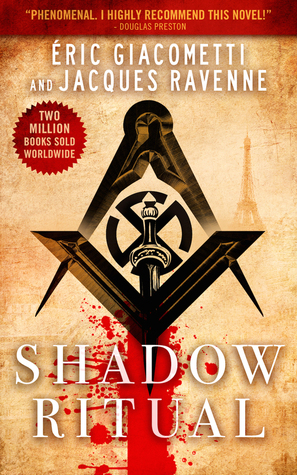 Shadow Ritual (reviewed today here) is one of those books that just reached out and grabbed me. It wouldn’t let go, or I couldn’t, until I turned the last page a few brief hours later. I was absorbed and enthralled.
Shadow Ritual (reviewed today here) is one of those books that just reached out and grabbed me. It wouldn’t let go, or I couldn’t, until I turned the last page a few brief hours later. I was absorbed and enthralled.
The history and mystery that fuels this story is one that most of us don’t know well. The Freemasons and the history of the Masonic Order is shrouded in mysteries and secrets for those of us on the outside. In this Q&A, the authors tell a bit about how they chose as their protagonists a police detective who is a Mason and a security officer who is beyond derisive of those practices, as well as a glimpse of how much truth in wrapped in their absorbing piece of fiction.
Just to whet your appetite for this book, an excerpt is included at the end. This is one of those book tours where I wish that there was a giveaway attached. However, the publisher is doing a book tour at the same time as this one, and it does have a giveaway. Check here for details.
And now, on to the questions…
1. How did the two of you come together to write SHADOW RITUAL?
Many things led us into this adventure. First of all, Jacques is a Freemason, and Eric had investigated scandals linked to freemasonry. We had two different visions of this brotherhood. Second, Eric had already written a mystery and his French publisher was encouraging him to write another one. Thirdly, we had known each other since our teenage years together spent in Toulouse, in the south of France, when we shared a passion for esoteric mysteries and secret societies. At the time, while others were flirting, we were exploring Cathar castles and Templar outposts, certain we would find some lost treasure, perhaps even the Holy Grail. We always kept a bit of that feeling of wonder. All of this came together with the idea of a Freemason inspector. Two other inspirations fed Shadow Ritual: the little known story of Freemason persecutions in Nazi-occupied France, and the true story of French Freemason archives stolen by the Nazis in 1940, recovered by the Soviets in 1945 and only returned to France in 2000. What secret did they hold?
2. How does the fact that Jacques is a Freemason and Eric is a Profane affect the portrayal of the relationships between your characters?
It gives us a more balanced view of freemasonry: one that is not too indulgent and not too full of fantasy.
3. What was the inspiration for the characters Antoine Marcas and Jade Zewinski?
Antoine embodies an upright Freemason who believes in his ideals, but is aware that the brotherhood is not perfect. He is always doubting, and that is his strength. Jade is hostile to freemasonry and challenges Marcas, by asking him all the questions the Profane have about this secret society.
4. The Inspector Marcas series is an international phenomenon! Has the success of the series changed your life?
The success of the series has allowed us the freedom to write and earn a living from it, which is a real luxury.
5. How did you decide to write a series with a freemason as the protagonist?
We though thrillers are an excellent way for readers to discover the world of freemasonry. Then, we were doubly lucky: at the time, nobody in France had had the idea of creating a positive Freemason protagonist, and Dan Brown published his Da Vinci Code a year before we brought out the first Antoine Marcas mystery in French. We were the first French authors to benefit from the Dan Brown effect.
6. SHADOW RITUAL deals with actual Freemason history and the potential implications of a breach; has SHADOW RITUAL ruffled some feathers?
At first, Jacques’s brothers were a little thrown off. But over time, freemasons have become fervent supporters of Inspector Marcas. The rituals and meetings described in the books are genuine, and readers can understand a little bit more about the brotherhood.
7. How much research do you have to do, which are the most difficult types of scenes to research, and have you ever had to go to extreme or unusual lengths to research a scene?
We spend a lot of time in libraries, often in Freemason libraries, which have many rare books. We also meet with scholars. This is a fascinating part of the work, but it’s important not to get lost in the research or to recount too much of what we found in books. The hard part is building a plot and adjusting the mechanism to work like clockwork.
8. What are you reading now?
The Black Swan by Nassim Nicholas Taleb, a fascinating book about the unforeseeable events that change the destinies of nations.
9. Who or what has influenced your style of writing?
Jacques’s influences are very literary, as he was a French professor and a Paul Valery scholar. Eric’s are more thrillers (both books and movies).
10. What’s up next for you, Eric?
I’m heading to New York for Thrillerfest in July. I can’t wait to meet other thriller writers. And next year, there will be another Antoine Marcas thriller in English, one with surprising Freemason information about the Statue of Liberty and the Eiffel Tower.
11. What’s up next for you, Jacques?
Las Vegas in August to celebrate my son’s twenty-first birthday, and shared impatience with Eric for the next Marcas adventure.
Excerpt:
PROLOGUE
1945
BERLIN
The bombings had redoubled at dawn, and the ground trembled. The man’s razor slipped a second time. Blood dribbled down his stubbly cheek. He clenched his jaw, grabbed a damp towel, and dabbed the cut.
Designed to last a thousand years, the bunker’s foundations were showing signs of weakness.
He looked in the cracked mirror above the sink and barely recognized his face. The last six months of combat had left their mark, including two scars across his forehead, souvenirs of a skirmish with the Red Army in Pomerania. He would celebrate his twenty-fifth birthday in a week, but the mirror reflected someone a good ten years older.
The officer slipped on a shirt and his black jacket and shot a half smile at the portrait of the Führer, a mandatory fixture in all the rooms of the Third Reich Chancellery’s air-raid shelter. He put on his black helmet, adjusted it, and buttoned his collar, fingering the two silver runes shaped like S’s on the right.
His uniform had such power. When he wore it, he soaked up the fear and respect in the eyes of passersby. He reveled in the gazes that oozed submission. Even children too young to understand the meaning of his black uniform pulled away when he tried to be friendly. It reactivated some primitive fear. He liked that. Intensely. Without his beloved leader’s national socialism, he would have been a nobody, just like the others, leading a mediocre life in an ambitionless society. But fate had catapulted him to the inner circle of the SS.
Now, however, the tide was turning. Judeo-Masonic forces were triumphing again. The Bolsheviks were scampering, ready to take over like a swarm of rats. They would spare nothing. Of course, he hadn’t either. He’d left no prisoners on the Eastern Front.
“Pity is all the weak can be proud of,” Reichsführer Heinrich Himmler liked to tell his subordinates. That same man had given him—a Frenchman—the Iron Cross for his acts of bravery.
Another tremor shook the concrete walls. Gray dust fell from the ceiling. That explosion was close, maybe just above the bunker in what remained of the chancellery gardens.
Obersturmbannführer François Le Guermand brushed the dust from his lapels and examined himself again. Berlin would fall. They had known this since June, when the Allies invaded Normandy. But what a year it had been. A “heroic and brutal” dream, to borrow the words of José-Maria de Heredia, the Cuban-born French poet Le Guermand loved.
A dream for some and a nightmare for others.
It began after he’d joined the SS Sturmbrigade Frankreich and then the Charlemagne Division, swearing allegiance to Adolf Hitler. This came two years after he’d marched off with the Legion of French Volunteers Against Bolshevism. Marshal Pétain’s spinelessness had disgusted him, and he had set his sights on the Waffen SS units that were taking foreign volunteers.
He had fought bravely, and one day a general invited him to dinner that changed his life. Anti-Christian comments filled the conversation. The guests praised old Nordic religious beliefs and championed racist doctrines. Le Guermand listened with fascination as they related the strange and cruel stories of the clever god Odin, the dragon slayer Siegfried, and mythic Thule, the ancestral homeland of supermen, the real masters of the human race.
Le Guermand was seated next to the general’s liaison, a major from Munich who explained how SS officers with pure Germanic blood had received intensive historical and spiritual training. “The Aryan race has waged battle with degenerate barbarians for centuries,” he said.
Before, Le Guermand would have mocked the words as the wild imaginings of indoctrinated minds, but in the candlelight, the magical stories were a powerful venom, a burning drug that flowed into his blood, slowly reaching his brain and cutting it off from reason. Le Guermand was caught in the maelstrom of a titanic combat against the Stalinist hordes, and at that moment, he understood the real reason he had joined this final battle between Germany and the rest of the world. He grasped the meaning of his life.
On that winter solstice in 1944, in a meadow lit up by torches, he was initiated into the rites of the Black Order. As he faced a makeshift altar covered with a dark gray sheet embroidered with two moon-colored runes, he heard the deep voices of soldiers chanting all around him: “Halgadom, Halgadom, Halgadom.”
“It’s an ancestral Germanic invocation that means ‘sacred cathedral,’” the major told him. “But it’s nothing like a Christian cathedral. Think of it as a mystical grail.” The major laughed. “In a Christian context, it’s like a celestial Jerusalem.”
An hour later, the torches were extinguished. As darkness swallowed the men in ceremonial uniforms, Le Guermand emerged a transformed man. His existence would never be the same. What would it matter if he died? Death was nothing but a passage to a more glorious world. François Le Guermand had joined his fate with that of this community. It was cursed by the rest of humanity, but he would receive sublime teachings promising new life, even if Germany lost the war.
The Red Army continued to advance. Le Guermand’s division took a battering. Then, on a cold and wet morning in February 1945, when he was supposed to be leading a counterattack in East Prussia, Le Guermand received orders to report to the Führer’s headquarters in Berlin. There was no explanation.
He bid good-bye to his division, only to learn later that his fellow soldiers, exhausted and underequipped, had been decimated that very day by the Second Shock Army’s T-34 tanks.
The Führer had saved his life.
On his way to Berlin, Le Guermand passed countless German refugees fleeing the Russians. The radio broadcast Dr. Goebbels’s propaganda: Soviet barbarians were pillaging houses and raping women. It made no mention of the atrocities committed by the Reich when they had marched victoriously on Russia.
The lines of frightened runaways went on for miles.
How ironic. In June 1940, his family had pulled a cart along a road in Compiègne, France, fleeing the arriving Germans. Now he was a German soldier, and he was retreating. From the backseat of his SS car, he contemplated the dead German women and children lying on both sides of the road, some in an advanced stage of decomposition. Many had had their clothing and shoes stolen. This de- pressing spectacle was nothing compared with what he would find when he arrived in the capital of the dying Third Reich.
Past the northern suburb of Wedding, he gazed at the burned and crumbling buildings, the victims of incessant Allied bombings. He had known Berlin when it was so arrogant and proud to be the new Rome. Now he gawked at the masses of silent inhabitants trudging through the ruins.
Flags bearing swastikas hung over what remained of the rooftops. His car came to a stop at an intersection on Wilhelmstrasse to let a convoy of Panzer Tiger tanks and a detachment of foot soldiers pass. Le Guermand watched as a man spit at the troops. Before, such behavior would have led to an arrest and a beating. On this day, the man just went on his way.
A banderole remained intact on the side of an intact building—an insurance company—that hadn’t been destroyed. “We will vanquish or we will die,” its large gothic letters read.
Arriving at the chancellery guard post, he found the bodies of two men hanging from streetlights. They hadn’t been as lucky as the man who had spit at the troops. The dead men were wearing placards: “I betrayed my Führer.” Probably deserters caught by the Gestapo and immediately executed, Le Guermand thought. Examples. No Germans could escape their destiny. The bodies, their faces nearly black from asphyxiation, swayed in the wind.
To his surprise, there was no officer to meet him at the bunker, but instead, an insignificant civilian. His thread- bare jacket bore the insignia of the Nazi Party. The man told him that he and the other officers of his rank would be assigned to a special detachment under the direct orders of Reichsleiter Martin Bormann. His mission would be explained in due time.
The man led him to a tiny room. Other officers, all detached from three SS divisions—Wiking, Totenkopf, and Hohenstaufen—had received the same orders and were lodged in nearby rooms.
Two days after they arrived, Martin Bormann, secretary of the Nazi Party and one of the few dignitaries to still be in Adolf Hitler’s good graces, called the Frenchman and his comrades together. With a cold, self-confident gaze on his bloated face, he looked at the fifteen men gathered in what remained of a chancellery meeting room. Then Hitler’s dauphin spoke in a strangely shrill voice.
“Gentlemen, the Russians will be here in a few months. It is possible that we will lose the war, even though the Führer still believes in victory and has put his faith in new weapons even more destructive than our long-range V-2 rockets.”
Bormann let his eyes drift over the group before continuing his monologue.
“We need to think about future generations and remain committed to final victory. Your superior officers chose you for your courage and loyalty to the Reich. I speak especially for our European friends from Sweden, Belgium, France, and Holland who have conducted themselves as true Germans. During the few weeks we have left, you will be trained to survive and perpetuate the work of Adolf Hitler. Our guide has decided to stay to the end, even if he must give his life, but you will leave in due time to ensure that his sacrifice is not in vain.”
Le Guermand looked around. The other officers were murmuring and shifting in their chairs. Bormann continued.
“Each of you will receive orders that are vital for our work to continue. You are not alone. Other groups such as yours are being formed throughout German territory. Your training will begin at eight tomorrow morning and will last for several weeks. Good luck to all of you.”
During the two months that followed, they were taught to live an entirely clandestine life. François Le Guermand admired the organization that persevered, despite the impending apocalypse. He felt detached from his French roots, from that nation of whiners that had prostrated itself at the feet of Charles de Gaulle and the Americans.
Le Guermand was cloistered in underground rooms and went days without seeing sunlight. A rodent’s life. There was no rest between the lectures and coursework. Soldiers and civilians introduced him to a vast network that was especially active in South America, as well as Spain and Switzerland.
They were trained in covert bank transfers and identity management. Money didn’t seem to be a concern. Each member of the group had a duty: to go to his assigned country and blend with the population under a new identity. Then wait—ready to act.
By mid-April, the Soviets were just six miles from Berlin. Three hundred French survivors of the Charlemagne Division were guarding the bunker. That was when the liaison officer from Munich arrived. Bormann deferred to the major, as though he were a superior officer. Le Guermand ate a quick lunch with the major, who called Hitler an evil madman and then held out a black card embossed with a white capital T.
“This card marks your membership to an ancient Aryan secret society, the Thule-Gesellschaft,” the major explained. “It has existed since long before the birth of Nazism. You have been chosen for your courage and devotion. If you survive the war, other members of the Thule will contact you with new orders.”
ABOUT THE AUTHORS

Jacques Ravenne is a literary scholar
who has also written a biography of the Marquis de Sade
and edited his letters.
He loves to explore the hidden side of major historical events.
Eric Giacometti was an investigative reporter
for a major French newspaper.
He has covered a number of high-profile scandals
and has done exhaustive research in the area of freemasonry.
ABOUT THE TRANSLATOR
Anne Trager loves France so much she has lived there for 27 years and just can’t seem to leave. What keeps her there is a uniquely French mix of pleasure seeking and creativity. Well, that and the wine. In 2011, she woke up one morning and said, “I just can’t stand it anymore. There are way too many good books being written in France not reaching a broader audience.” That’s when she founded Le French Book to translate some of those books into English. The company’s motto is “If we love it, we translate it,” and Anne loves crime fiction, mysteries and detective novels.
***
Follow Le French Book on Twitter | on Facebook
Sign up to receive their latest news and deals.
Buy the book | on Amazon | Barnes & Noble | Indiebound | Kobo
 Format read: ebook provided by the publisher via NetGalley
Format read: ebook provided by the publisher via NetGalley There’s something about Never Too Late that makes it seem like a precursor for the utterly marvelous Four Friends (reviewed here).
There’s something about Never Too Late that makes it seem like a precursor for the utterly marvelous Four Friends (reviewed here).
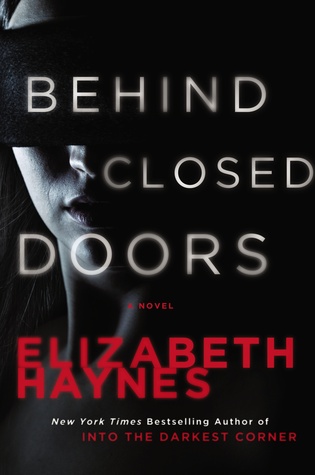
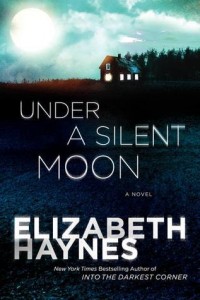 Detective Chief Inspector (DCI) Louisa Smith’s first case as a new DCI was told in
Detective Chief Inspector (DCI) Louisa Smith’s first case as a new DCI was told in 

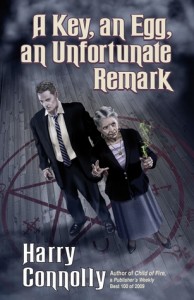 A- Review: A Blink of the Screen by Terry Pratchett
A- Review: A Blink of the Screen by Terry Pratchett Coming Next Week:
Coming Next Week:












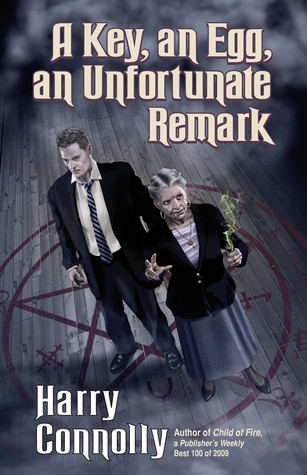

 Shadow Ritual (reviewed today
Shadow Ritual (reviewed today 

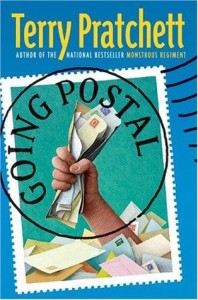 In
In 
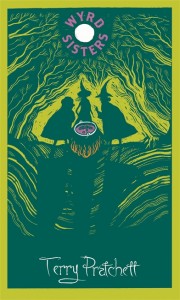 Of the Discworld stories, well, if you have loved any of the Witches stories (start with either
Of the Discworld stories, well, if you have loved any of the Witches stories (start with either